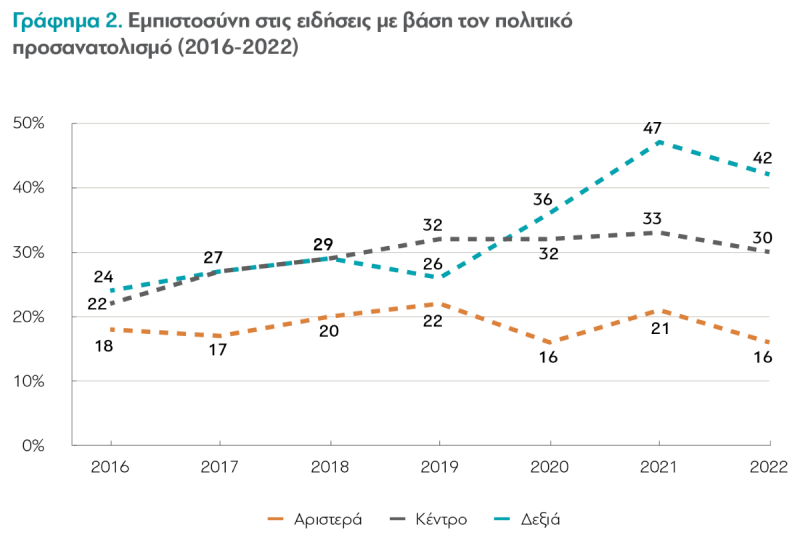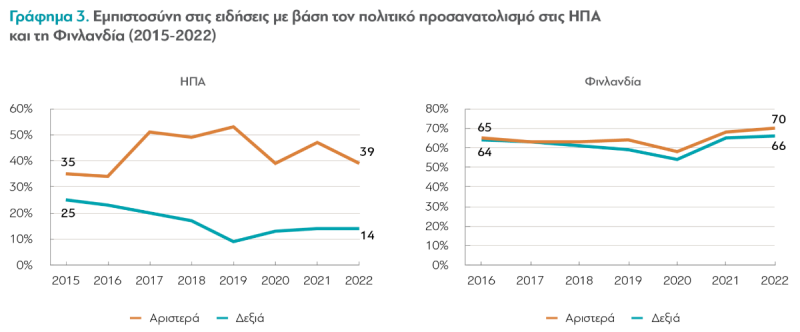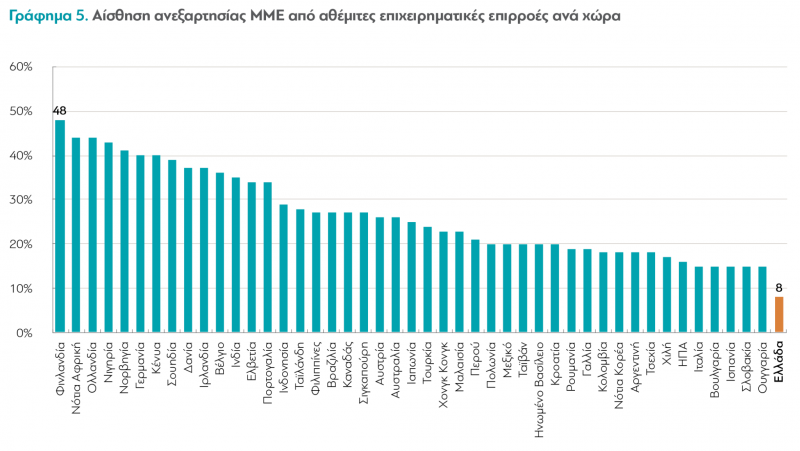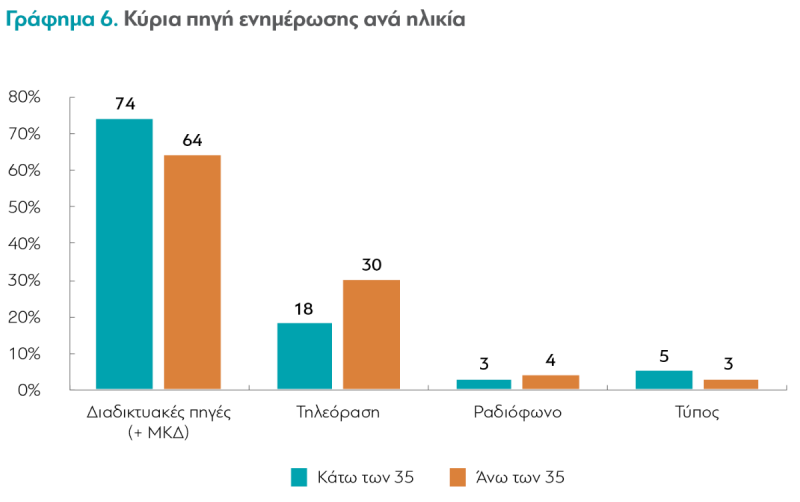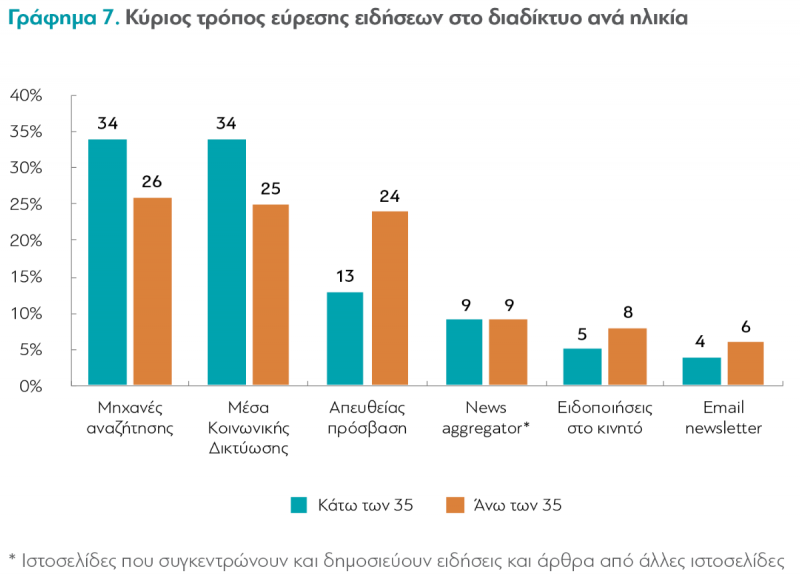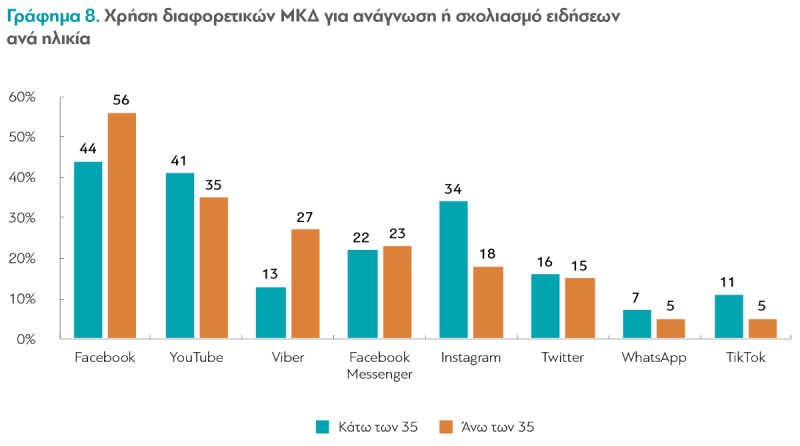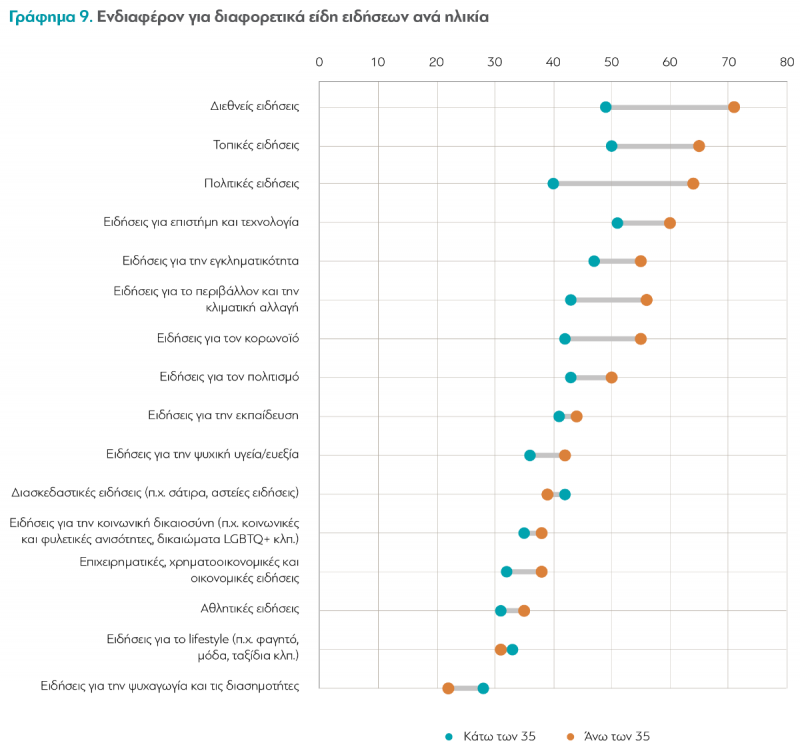The report also covers the ways in which younger internet users find and read news.
The Reuters Institute for Oxford Journalism Studies’s annual Internet News Report (Digital News Report) began in 2012, with the aim of studying the information habits of citizens of 5 countries. Since then the research has been gradually expanded and now, in 2022, it is implemented in 46 countries. Greece is included in the research sample from 2016 and the διαΝΕΟσις publishes for the fifth consecutive year the main findings concerning our country, about which writes the research institute of the Reuters Institute Antonis Kalogeropoulos.
The data is based on a large online sample survey of a larger of 2,000 people per country. The sample is representative of the population of each country that has an internet connection (in Greece the percentage is 78%) and not representative of the total population. In Greece the sample this year was 2,004 people.
The poll was conducted from the end of January to the beginning of February 2022. During that period, the predominance of the Omicron mutation was in the news. The Russian invasion of Ukraine began when the investigation was already completed. More information about the research, the questionnaire and its methodology can be found on the main page of the report.
This year’s exhibition has as a subject the cynicism of the Greeks towards journalism and the media as well as the ways in which younger internet users find and read news.
1. Cynicism and trust in the media
From users’ responses regarding the trust in the news, we see that Greece is at relatively low levels compared to the other countries participating in the survey, with only 27% of the sample saying that they trust “most of the news most of the time”. “.
Greece is traditionally low on trust in the news. During the first phase of the pandemic, however, confidence rose in Greece as in most research countries. But overall, confidence fell by 5 percentage points this year.
Looking at the confidence in the news over time since 2016 that the research is conducted in Greece, based on the political orientation of the respondents, we see that in recent years the political polarization has affected the relationship of citizens with the media. For the purposes of this graph, we divided the respondents into “left”, “center” and “right” based on how they position themselves on the political axis. Although already in 2016 there were low levels of trust in the news from all three groups, in 2022 we see bigger differences. More specifically, while among the “left” respondents there was a small decrease (from 18% to 16%) we observe an increase in trust in the “centrists” (from 22% to 30%) and in the “right” respondents (from 24% to 42 %). Thus, the 6 percentage points of trust that separated the left and right respondents in 2016 became 26 in 2022, reflecting the political controversy over the media between the government and the opposition in recent years.
The role of political polarization in trust in the news is not found only in Greece. A typical example is the US, as shown in Figure 3. In 2015, confidence in the news was higher in the “left” respondents by ten percentage points compared to the “right” (35% vs. 25%). The 2016 presidential election was followed by several attacks by President Trump on the traditional American media. In 2022, the confidence of the “left” American respondents improved, reaching 47%, while the confidence of the “right” fell to 14%. A different example is Finland, a country with traditionally high levels of trust in institutions and high levels of readability. There, although there have been fluctuations in media confidence in recent years, they are not affected at all by the political orientation of the respondents.
The sense of transparency behind the production of news is one of the parameters that affects the trust in the news. In this year’s report we included questions about possible unfair influences on the content of the media by political or business power centers. Respondents were asked to agree or disagree with the proposals “The media in my country are largely free from undue political influence” and “The media in my country are largely free from undue business influence”. In Graphs 4 and 5 we see the percentages of respondents who agree with these two proposals by country.
In none of the 46 countries surveyed does the majority believe that the media is largely free of undue influence. In Greece, however, only 7% and 8% of the sample believe that the media are free from unfair political or business influences, respectively. These percentages bring it to the last position of the 46 countries, while no particular differences were observed in the percentages of Greece based on the gender, age, level of education or political orientation of the respondents.
2. News and online news
Young people are one of the most interesting groups to observe their information habits. Most internet users under the age of 35 have an internet connection as minors and have no recollection of the information landscape before the advent of the internet.
The different age-based information habits are distinct when we consider what is the main source of information of the respondents of different ages (either online or offline) (Graph 6). Those under the age of 35 choose online sources (74%) to a greater extent than those over the age of 35 (64%). “Television” is chosen as the main source of information by 30% of those over 35 and only 18% of those under 35, while very small percentages choose radio and the press as their main source of information, regardless of age. Here it is important to mention that the age differences in the choice of internet sources and television would be even greater if we had included the percentage of Greeks who do not have an internet connection, who are usually older.
However, it is important to see how respondents of different ages find news on the internet. As shown in Figure 7, older respondents are more likely to find news online by going directly to news sites. 24% of those over 35 find news mainly by going directly to news websites, while only 13% of younger people find news this way. Younger internet users prefer to either “find” the news on social media (34% vs. 25% for those over 35), or search for current issues in search engines (34% vs. 26% respectively) .
Given the central position of social media in the media in Greece, it is interesting to see which platforms are used by users of different ages. While Facebook remains the main platform for reading and commenting on news in both age groups, one third (34%) of younger people prefer to stay updated on Instagram (compared to 18% among those over 35). Older people, on the other hand, prefer to exchange news links or discuss the news via Viber messaging.
Finally, we observe age differences in interest in different types of news. Younger people show less interest in most types of news. For example, only 40% of young people under 35 are interested in political news – the corresponding figure for those over 35 is 63%. The differences are more limited to other types of news, to issues related to social justice, social inequalities or lifestyle.
In short, young people in Greece show less interest in political developments and related news. Their relationship with information is more passive than older people. They are more likely to believe that the news will “find them” on platforms such as Facebook and Instagram and seem less willing to actively seek it out. In addition, few young people are now mainly informed by television. These distinctions are important. Through social media or search engines, younger users are more likely to read news from alternative media or internet personalities. However, the ranking of news on social media and search engines is done by algorithms and not by journalists and editors. This has implications for the quality of the information. As it turns out, unmediated information directly from news websites is associated with better levels of information on current developments than “mediated” information through social media. This is likely due to the technological architecture of MKD, which can cause a feeling of satiety from the many and varied information that coexist on platforms such as Facebook.
Read the full report
I have worked in the news industry for over 10 years. I have a vast amount of experience in covering health news. I am also an author at News Bulletin 247. I am highly experienced and knowledgeable in this field. I am a hard worker and always deliver quality work. I am a reliable source of information and always provide accurate information.


